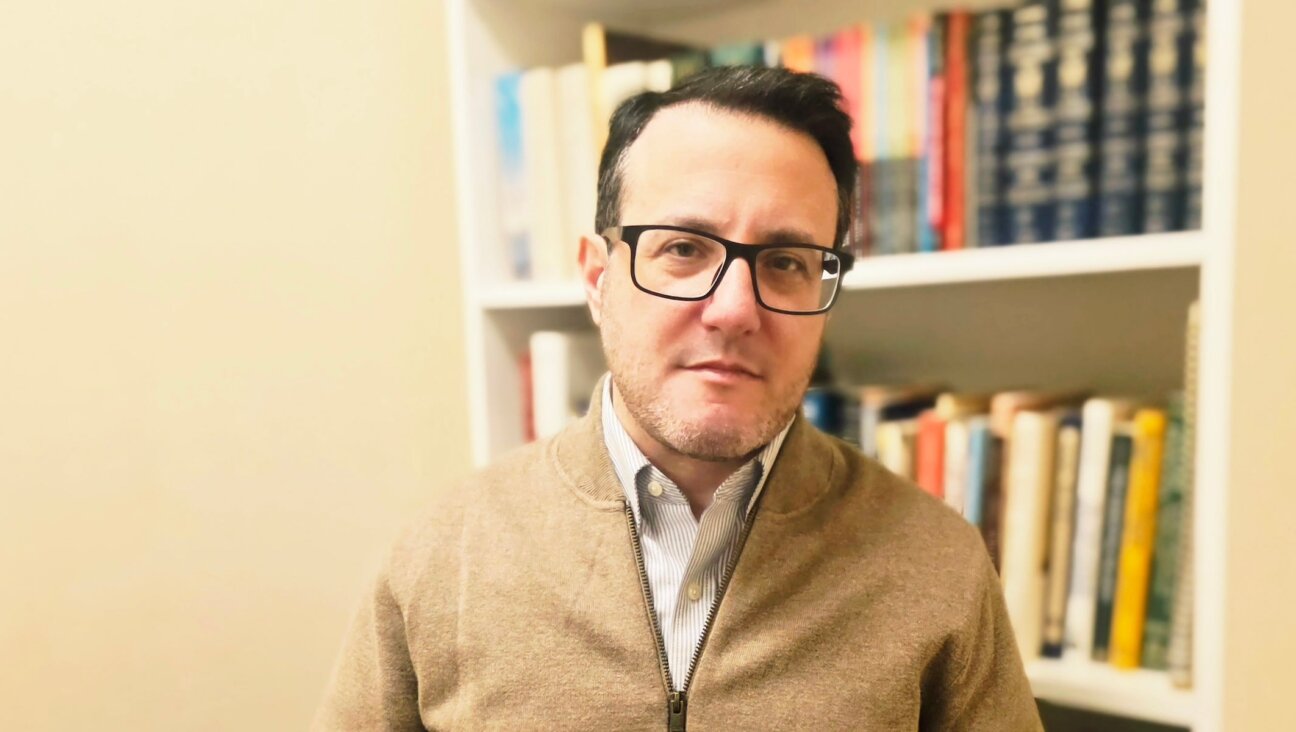Learning To Pray Every Day

Graphic by Angelie Zaslavsky
A friend of mine posted a crowd-sourcing question on Facebook one day: “What are things you try to do every day?” I’m not sure the reason for her question — though she is a cognitive psychology student studying morality — but it stuck with me, mostly because it was something that seems to capture a person’s priorities in a simple glance.
I answered: read, run and write. If I answered today, four months later, I would add “pray.” That was something I was doing every day on the train, but on days when I didn’t go in to work, I was letting that fall by the wayside; these days I’m making a more concerted effort to daven every day, in part inspired by Jeremy’s commitment to the same thing and in part because I felt the need to work on myself and chose this act in particular while sitting in front of the Kotel this summer. So these days I maintain a concentrated effort to read, run, write and pray.

Simi wants to make praying into an everyday activity, like making dinner. Image by Claudio Papapietro
Saying the daily prayers wasn’t always a priority in my life; there were months in years past when I wouldn’t daven at all, only saying them if I happened to go to shul on Shabbat morning. I had many justifications for why I didn’t take the time—I was too busy, I didn’t have to as a woman, I could feel connected to religion and God without them—but the truth was, in hindsight, I just didn’t want to.
Occasionally, when I did daven on Shabbat or a holiday in shul, I would find myself uplifted by it, enjoying the tradition and communal aspects, the words and the songs and their meanings. But for the most part, I just ignored that particular responsibility. No one else had to know. Maybe that’s why I was okay with skipping it; I might have to deal with the guilt of passing up on prayers, but at least no one else would know, whereas my decisions to follow Jewish modesty laws, to keep Shabbat and kosher, were about as public as they could be.
But here’s the main reason I think I avoided praying: I came to resent all the requirements of Jewish law that were expected of me that I didn’t particularly see a reason for. I sort of started over with my Jewish observance halfway through college. I made a change where, instead of keeping all the laws I’d been keeping forever simply because I’d been keeping them forever — and was expected to continue doing so — I thought about them. I embraced Judaism for the first time out of choice rather than out of habit.
It was a slow process. I abandoned a few things while keeping others. I was trying to find my own personal way within Judaism, a Judaism I could feel connected to and find meaningful; otherwise, I wasn’t sure I could maintain a lifetime of commitment to something simply placed on me. Prayer was one of the first things to go. Instead of saying it every now and then, I barely tried. But as I made my way through my self-discovery, I took on more and more of what I had dropped, able to find meaning in Jewish practice now that I was thinking about what it meant. Prayer came back late.
About a year ago I started davening on train rides, since I had time anyway. A few months ago, I’d started feeling like I hadn’t made much personal progress in my religious observance — continual progress being something I felt was important to my understanding of religion — and I looked around for something to work on. Sitting at the Kotel this summer, saying mincha because prayer is just what you do at the Kotel, I realized: I was feeling guilty about not davening every day, but wasn’t making a change. So why not make the change?

















